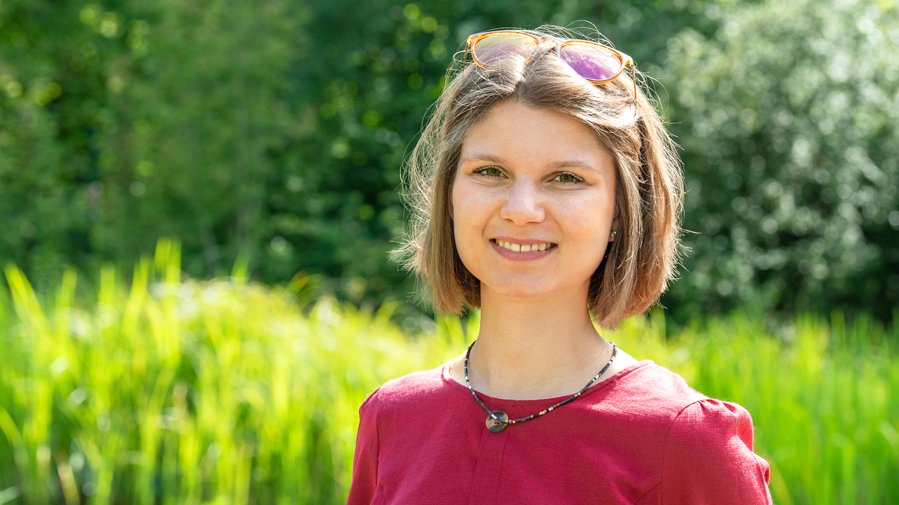Nobel Laureate Meeting in times of the coronavirus
Speed-dating among scientists

Carolin, things have been a little different this year, haven't they?
Carolin Klose: Yes, the meeting couldn't take place in Lindau this year because of the coronavirus, so it was postponed to 2021. Instead, the organizers initiated the "Online Science Days", a digital meeting from Sunday to Wednesday, which was open to this year's participants and to all Lindau alumni. A continuous program was offered for every day from 6 am to 6 pm.
What was on offer?
Before the official program, there was already a Sciathon – as an equivalent to a Hackathon – in which we were supposed to work out a solution to one of three topics in smaller groups. The winning projects were then presented in the course of the Online Science Days. From Sunday to Wednesday, there were numerous lectures and discussions on various scientific topics, often related to the coronavirus. For example, a post-doctoral student from England reported on her research on a corona vaccine.
Were you participants able to join in a little via the internet?
The moderators guided the participants through the program and made sure that everything went smoothly. After the lectures, we always had the opportunity to join in with audio and video if we had questions or comments. I found it very well organized. In order to get to know the other participants a little better, "speed-dates" were arranged, where you could chat and talk with other young researchers for two minutes.
How did you like the days?
Very much! I tried to take part in as many of the program items as possible. The discussions with the Nobel Prize winners have further strengthened my enthusiasm for science. I also met a lot of great young researchers who are in a similar situation as I am. The exchange has given me a new motivation for my own research.
In what ways will you benefit from the conference yourself?
I realized how beautiful science is, as enthusiasm for research unites so many people around the world. Many of the prize winners emphasize they are happy about winning the Nobel Prize – and that they would also ungrudgingly grant the prize to other colleagues. This has shown me that a sense of community is incredibly important in science. We need to talk to each other about our research results and place even more focus on exchange and cooperation. Fair play as formulated in the Lindau Guidelines is extremely important. In addition, I personally became more aware of the importance of adequate science communication.
What does that mean exactly?
A large part of science is financed by taxpayers' money. Therefore, the results should be made available to the public in an understandable form. For example, with regard to climate change, it is essential that everyone should be able to access and understand the knowledge on which the concerns and regulations in our society are based.
Did anyone make a lasting impression on you?
In general, I was surprised how approachable and humorous many of the Nobel Prize winners are. I was particularly impressed by the biologist Elisabeth Blackburn, who was awarded a Nobel Prize in Medicine in 2009. In her lectures, she addressed the role of women in science and spoke very openly about her own career path. Often, it is difficult to reconcile the structures in science with family planning. The situation calls for a rethink to make it easier and to get more women into research.
You are currently working on your Master's degree. How do you want to continue?
I want to go into science and make a career there. I'm not yet sure in which direction I want to go, as I'm enthusiastic about different topics. I think it would be great if my basic research could help society, even if one probably wouldn't notice the results of individual research immediately.
(Interview: Sabrina Czechofksy)
Carolin Klose (23), who grew up at Lake Ammersee, is a student of Biochemistry in her 4th Master's semester at TUM. She is currently writing her Master's thesis at the Max Planck Institute of Biochemistry. She is already looking forward to next year, when she will meet the Nobel laureates personally in Lindau – as all participants from this year will also be able to go to Lindau next year. More information: Lindau Nobel Laureate Meetings